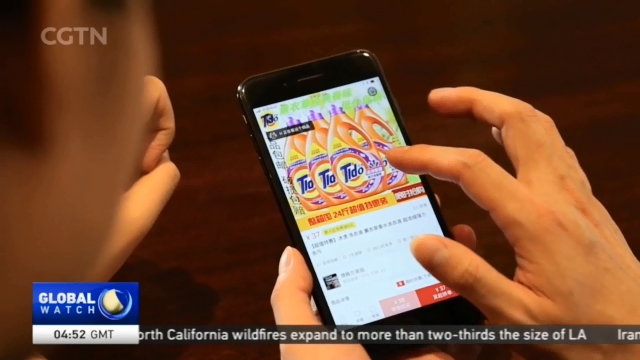
13:31, 05-Aug-2018
Pinduoduo IPO: China e-commerce discounter accused of selling fake goods
Updated
12:34, 08-Aug-2018
03:10

China's discount e-commerce site Pinduoduo has met a major setback - just days after its initial public offering in New York. The platform has been accused of selling counterfeit and low quality goods. Tao Yuan has the story.
The celebrations were short-lived. Just days after its high-profile Nasdaq debut, China's e-commerce discounter Pinduoduo faced a bombardment of allegations that some of the products listed on its platform are fake or substandard.
SANDY SHEN, RESEARCH DIRECTOR GARTNER "I think in the long term, this is going to be a make or break factor because you cannot carry on this business model especially now you're one of the major e-commerce platform."
A major platform indeed. At just three years old, Pinduoduo raised more than 1.6 billion dollars in the second biggest U.S. listing by a Chinese firm this year. The platform combines online shopping with social networking – with users inviting friends to join together in purchases. The group then gets deep discounts. The model has helped Pinduoduo attract over 300 million users. Legal expert Liu Yue says low prices are the big draw. But a closer look at the products reveals where the online bazaar may have allowed misleading goods to be sold on its platform. A laundry detergent named Tido, for example, bears striking resemblance to the American brand Tide. A toothpaste called Yunnan Chinese medicine, easily confused with the famed brand Yunnan White Drug.
LIU YUE BEIJING DACHI LAW FIRM "If the packaging design has been patented, then this may constitute patent infringement. Even if not, it may violate the Law against Unfair Competition by misleading consumers into believing they are buying products of a well-established brand."
The company has said its aim is to meet consumers' basic demands, providing modest products to lower-income shoppers – and older, more price-sensitive online customers from China's smaller cities and rural areas.
LIU YUE BEIJING DACHI LAW FIRM "From the looks of it now, I think the responsibility now lies with third-party vendors, and not the platform itself. But the platform has a legal responsibility to cooperate with regulators' investigation, and take down some products when necessary."
SANDY SHEN, RESEARCH DIRECTOR GARTNER "Now you're listed. People are looking at you through a magnifying lens. That's why being listed in the public market is going to put more pressure and make the company have to do something to correct this problem."
State Administration for Market Regulation has ordered the platform to strengthen management and set up a vetting mechanism. Pinduoduo has declined an interview request from CGTN, but has vowed in an online statement to "thoroughly rectify and reform" its business. Tao Yuan, CGTN, Beijing.

SITEMAP
Copyright © 2018 CGTN. Beijing ICP prepared NO.16065310-3
Copyright © 2018 CGTN. Beijing ICP prepared NO.16065310-3